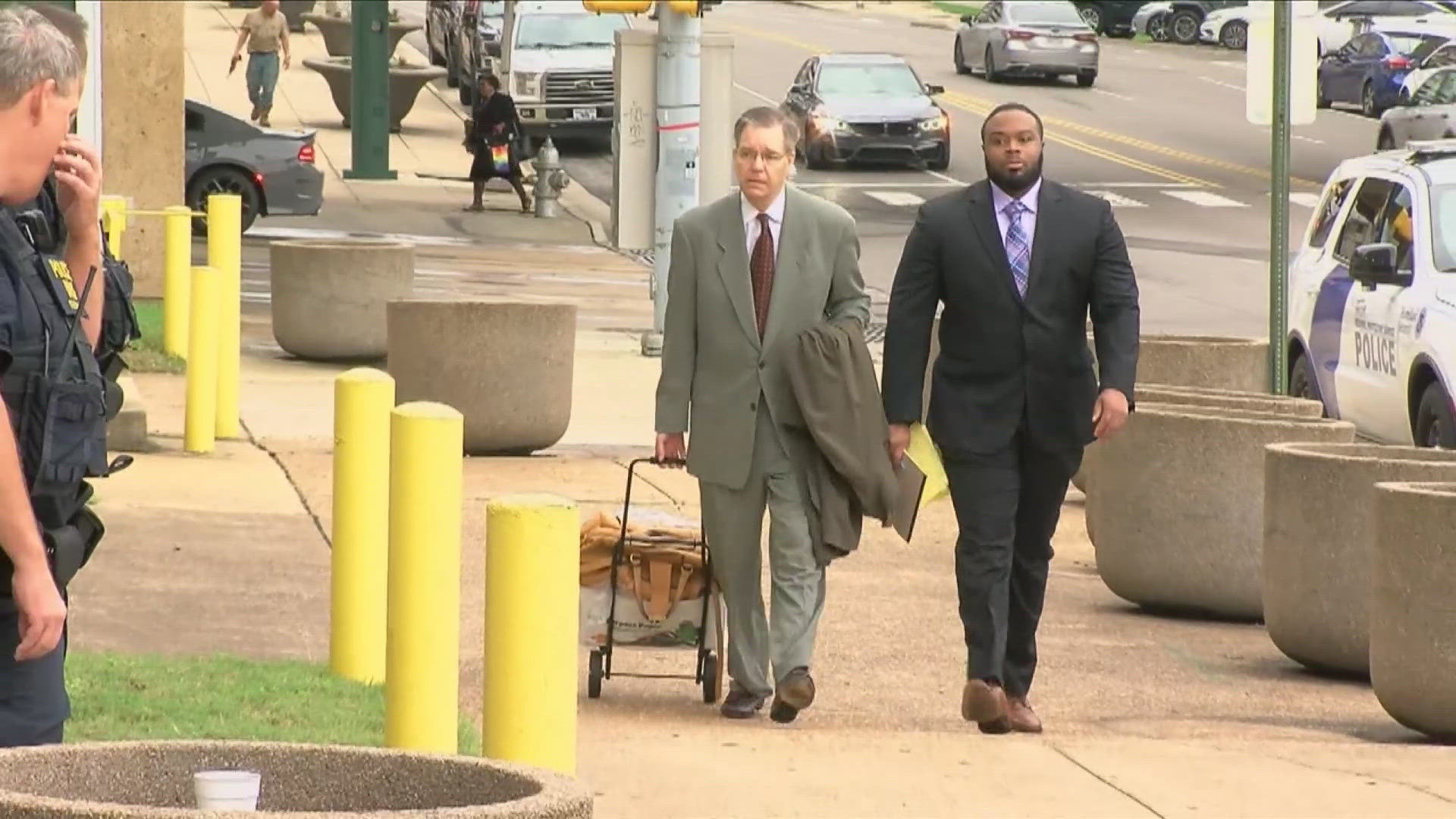MEMPHIS, Tenn. — Day six of the federal trial of three former Memphis Police Department officers indicted in Tyre Nichols death began with cross examination of Second Lt. Larnce Wright by Kevin Whitmore.
Demetrius Haley, Tadarrius Bean and Justin Smith are on trial in the United States District Court, each facing four counts of deprivation of rights under the color of law through excessive force and failure to intervene, and through deliberate indifference, conspiracy to witness tampering, and obstruction of justice through witness tampering.
Tyre Nichols died on Jan. 10, 2023, three days after a violent encounter with Memphis Police Departments now disbanded SCORPION Unit on Jan. 7.
Representing Bean, Whitmore continue to ask Wright on training methods at the training academy.
Before jurors were brought in Judge Mark Norris brought up the length of cross examination by Whitmore, noting he had cross examined Wright for an hour more than the governments initial questioning.
Norris noted that Whitmore said at the end of Friday that he had hours left.
“I think it may be excessive,” Norris said. “I’m not saying we’re there but we’re close.”
Norris noted that there are 37 witnesses to go and that a juror has potentially been lost due to illness.
Before Whitmore continued his cross, U.S. attorneys noted that the use of force policy chart briefly shown to Wright on Friday was actually from the Metro Police Department of Washington D.C.
Whitmore’s argument continued near 10 a.m., noting that Wright did not teach Bean in various classes so he couldn’t speak to what was taught.
Included in those classes he did not teach were report writing, medical classes and duty to intervene.
Whitmore showed Wright several of his own training presentation slides, noting that there is no such thing as a routine traffic stop and that any stop, “could turn violent in an instant.
The defenses argument again brought up training is only as good as the trainer of the subject, alluding to Nichols was fleeing and thus became a high risk stop.
Wright said if a violent felony was not committed, pursuit is not permitted.
Whitmore then focused on fatigue having an impact on officers, particularly when working double shifts.
Tunnel vision was also brought up as a factor on officers, with Whitmore asking if an officer could have tunnel vision on hands or an arm.
Whitmore brought up a prior case that Wright had given a deposition in and brought up how seeing Nissans, Kia’s and Infiniti’s can heighten suspicion of officers due to frequent theft of those vehicles.
While Wright did agree, he said, “I can’t tell you to violate someone’s rights just because they have a certain kind of car sir.”
Whitmore asked what would have happened if Bean had stayed in his vehicle after seeing Nichols after receiving the radio call of a suspect who had been beaten and tased and was on the run.
He asked if he would expect any officer to get out of the car to which Wright agreed.
Haley’s attorney Stephen Leffler questioned Wright’s experience and that a judge had never told him he had been an expert witness despite it being on his resume.
Wright said he was told that by city attorneys when he was given instructions and that’s why he had it on his resume.
Leffler also alluded to the fact that adrenaline was high after the Nichols stop and alluded that it could’ve had an impact on Haley when he wrote his response to resistance form.
Martin Zummach also questioned Wright and noted that there is nowhere in MPD policy that has written definitions of active or passive resistance.
Zummach, who represents Smith, asked if it was fair to say units such as SCORPION gets into more street fights to which Wright agreed.
The attorney also compared watching the video over and over could be like watching sports at home and seeing a missed call.
Zummach noted with Wright’s agreement that none of the pain compliance techniques used by officers on Nichols seemed to work and that the words used were verbal judo, meant to Nichols to comply.
Wright said that if he had heard a suspect had been sprayed, hit with a baton and tased, that he would assume the suspect was either strong or high.
Zummach said getting suspects in control is ugly and dirty work and that till a suspect is handcuffed, no one is safe.
Response to resistance forms were also brought back up. Zummach asked if those could be edited after if the words were wrong or narrative was off.
Wright said they could and there is a paper trail.
During redirect, United States attorney Kathryn Gilbert had Wright reiterate that punching someone in the head can be considered deadly force.
Wright also said that videos shown by Whitmore of training academy recruits being pepper sprayed and then fighting a dummy, is to ensure they can fight through the spray but only when deadly force is authorized.
Wright’s testimony ended by saying none of these officers use of force was consistent with training.

